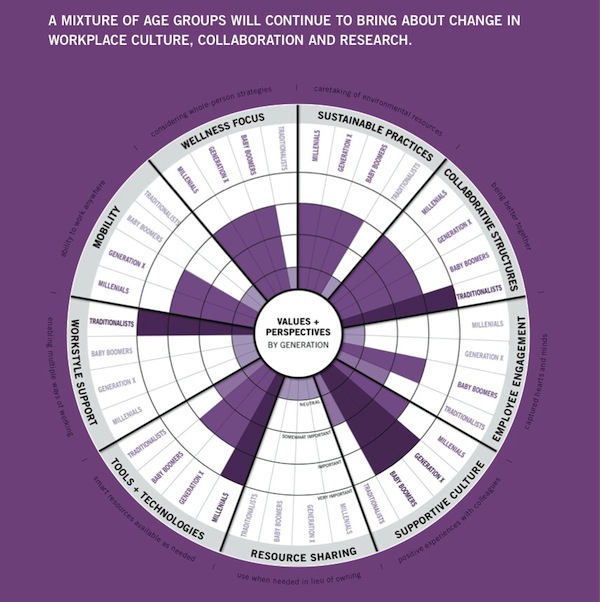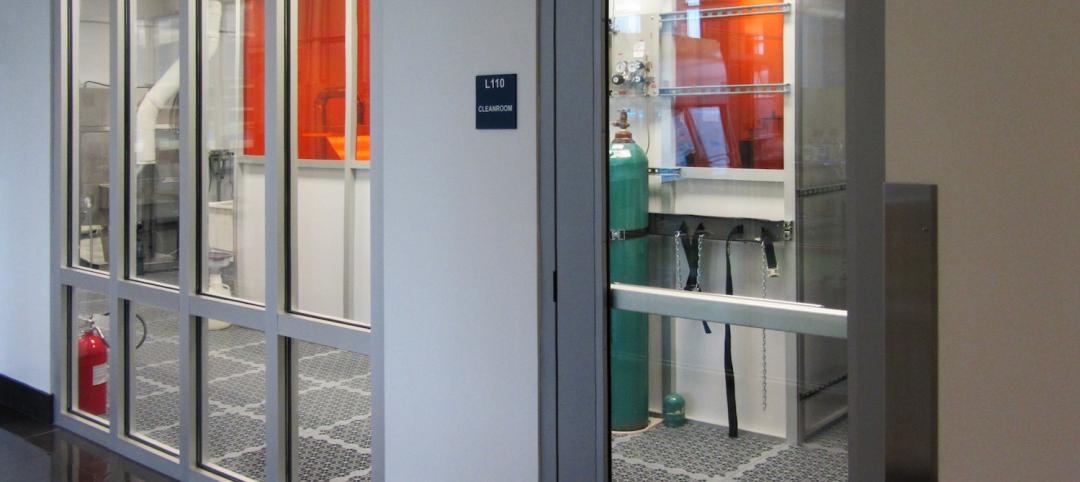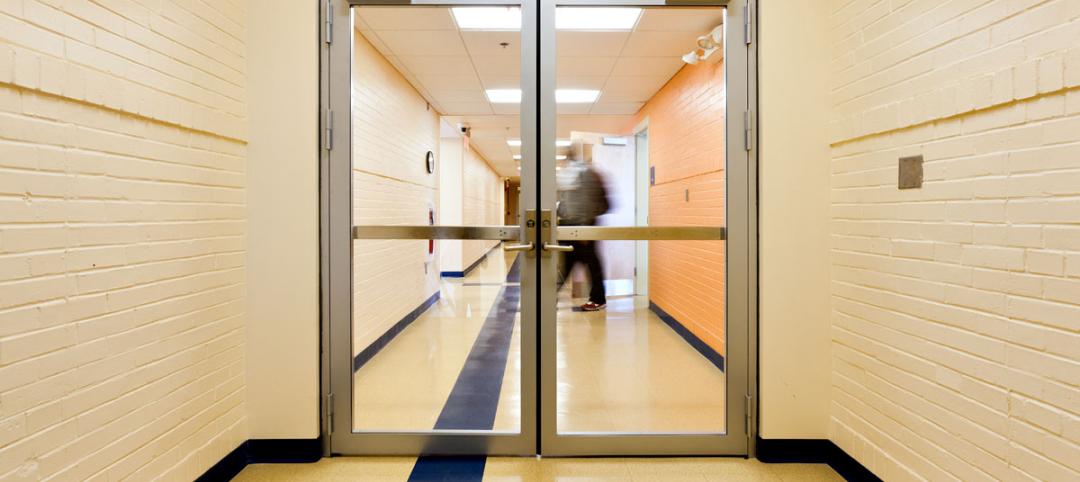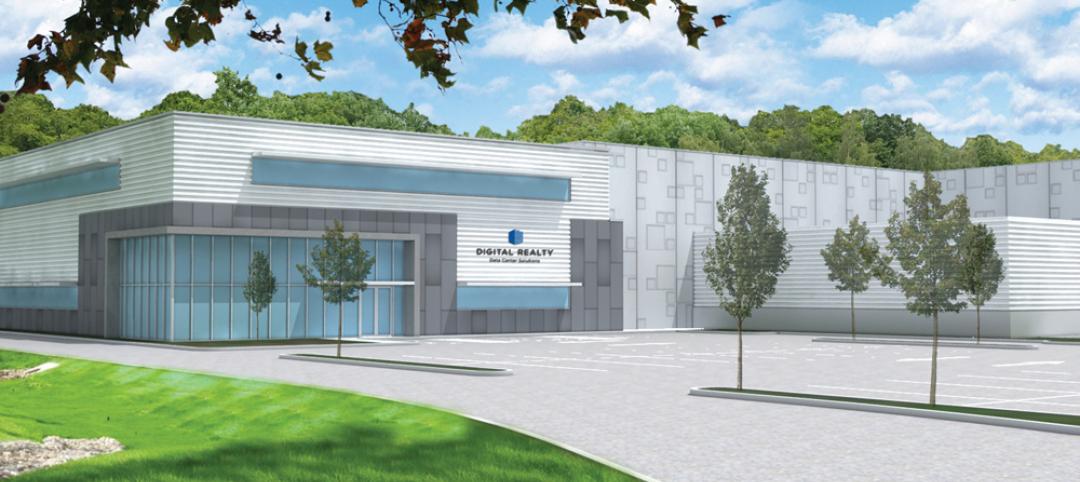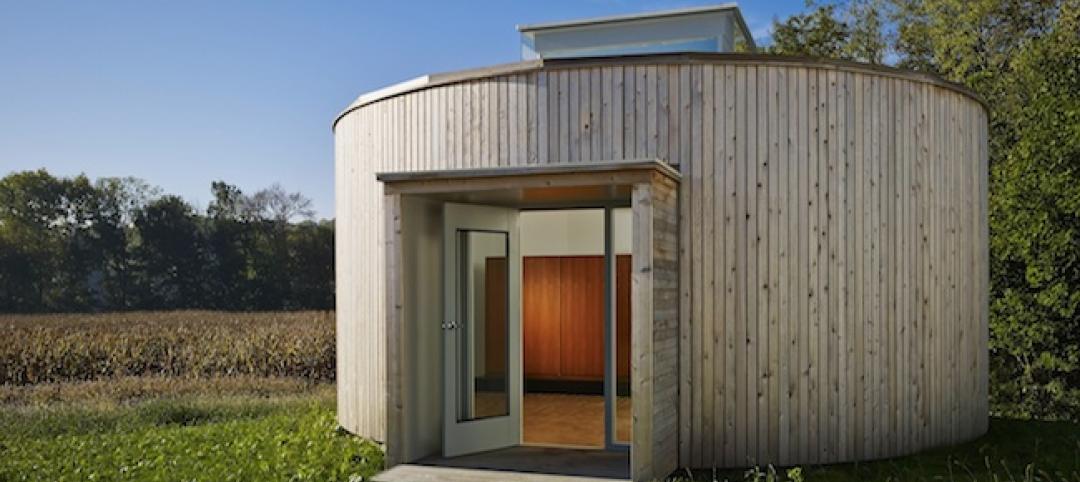Architectural giant Perkins+Will recently surveyed its staff of 1,500 design pros to forcast hot trends in the AEC field for 2014. The resulting Design + Insights Survey reflects a global perspective, influenced by the firm's active international projects.
Trend 1: Design + Resiliency
Robin Guenther, FAIA, LEED AP, Principal/Sustainable Healthcare Design Leader, labels Superstorm Sandy "a critical wake-up call." The report predicts that designers will pay more attention to creating work that accounts for the possiblity of natural disasters. Preparedness will be integrated with community-based design responses to impacts such as earthquakes, tornados, floods, and drought.
Trend 2: Design + Sustainability
Health aspects of building materials, as well as reduction in water use and adaptation to climate change, will be strong focuses in green design. The report characterizes material health as "the number one concern for 2014" among all sustainability issues.
Trend 3: Design + Active Design
Employee health and wellness will be increasingly central to design, the firm predicts. The intention to accommodate more movement opportunities in projects will have to overcome the fact that some clients do not see this as a high priority, particularly in workplace design. Nevertheless, "There are some alarming statistics that indicate movement throughout the day—or the lack of it—is part of a new frontier in predicting health outcomes," according to Joan Blumenfeld, FAIA, LEED AP, Principal/Global Interior Design Leader.
Trend 4: Design + Multigenerational Workplaces
A mix of age groups will continue to force change in workplace culture, collaboration, and research, according to the report. Traditionalists, Baby Boomers, Millennials, and Generation Xers often have very different ideas about what constitutes a productive and effective workplace. Millennials (1980-2000) prioritize tools and technologies, whereas Boomers (1946-1964) place a strong emphasis on a supportive culture. "Design [should address] the diverse workstyles emerging as a result of the generational shift underway," says Frederick J. Schmidt, IIDA, LEED AP, Managing Principal/Global Corporate Interiors Practice Chair.
Trend 5: Design + Technology
Modeling, collaboration, and mobile technologies will dramatically influence better design processes, the report predicts. Current key focuses include energy modeling and environmental analysis; project- and information-management applications; remote collaboration/communications technologies; and smartphones/tablets that enable mobility. Important emerging technologies include free and publicly available data sets, ubiquitous remote sensing, and rapid application development.
Related Stories
| May 27, 2014
One World Trade Center cuts rents due to sluggish activity
Sluggish economy and lackluster leasing force developer The Durst Organization and the Port Authority of New York and New Jersey to reduce asking rents by nearly 10% to $69/sf.
| May 27, 2014
Fire Rated Glass contributes to open lab environment at JSNN
Openness and transparency were high priorities in the design of the Joint School of Nanoscience & Nanoengineering within the Gateway University Research Park in Greensboro, N.C. Because the facility’s nanobioelectronics clean room houses potentially explosive materials, it needed to be able to contain flames, heat, and smoke in the event of a fire. SPONSORED CONTENT
| May 27, 2014
What are your services worth?
The price, cost, and value of design services are explored in a recent Design Intelligence article authored by Scott Simpson, a senior fellow of the Design Futures Council. Value, he explains, represents the difference between “price” and “cost.” SPONSORED CONTENT
| May 27, 2014
Contractors survey reveals improving construction market
The construction industry is on the road to recovery, according to a new survey by Metal Construction News. Most metrics improved from the previous year’s survey, including a 19.4% increase in the average annual gross contracting sales volume. SPONSORED CONTENT
| May 27, 2014
How to develop a dynamic referral system
Compelling your clients to provide you with quality referrals is one of the best ways to build a successful business. Here are ways to ‘train’ your clients to make quality referrals. SPONSORED CONTENT
Sponsored | | May 27, 2014
Grim Hall opens the door to fire safety with fire-rated ceramic glass
For the renovation of Lincoln University’s Grim Hall life sciences building into a state-of-the-art computer facility, Tevebaugh Associates worked to provide students and faculty with improved life safety protection. Updating the 1925-era facility's fire-rated doors was an important component of the project.
| May 26, 2014
New Jersey data centers will manage loads with pods
The two data center facilities totaling almost 430,000 sf for owner Digital Realty Trust will use the company's TK-Flex planning module, allowing for 24 pods.
| May 23, 2014
Big design, small package: AIA Chicago names 2014 Small Project Awards winners
Winning projects include an events center for Mies van der Rohe's landmark Farnsworth House and a new boathouse along the Chicago river.
| May 23, 2014
Top interior design trends: Gensler, HOK, FXFOWLE, Mancini Duffy weigh in
Tech-friendly furniture, “live walls,” sit-stand desks, and circadian lighting are among the emerging trends identified by leading interior designers.
| May 22, 2014
How to measure what matters
Measuring what matters is essential for professional services firms, says author and consultant Tim Williams, particularly as firms continue to experiment with the concept of outcome-based compensation agreements.



